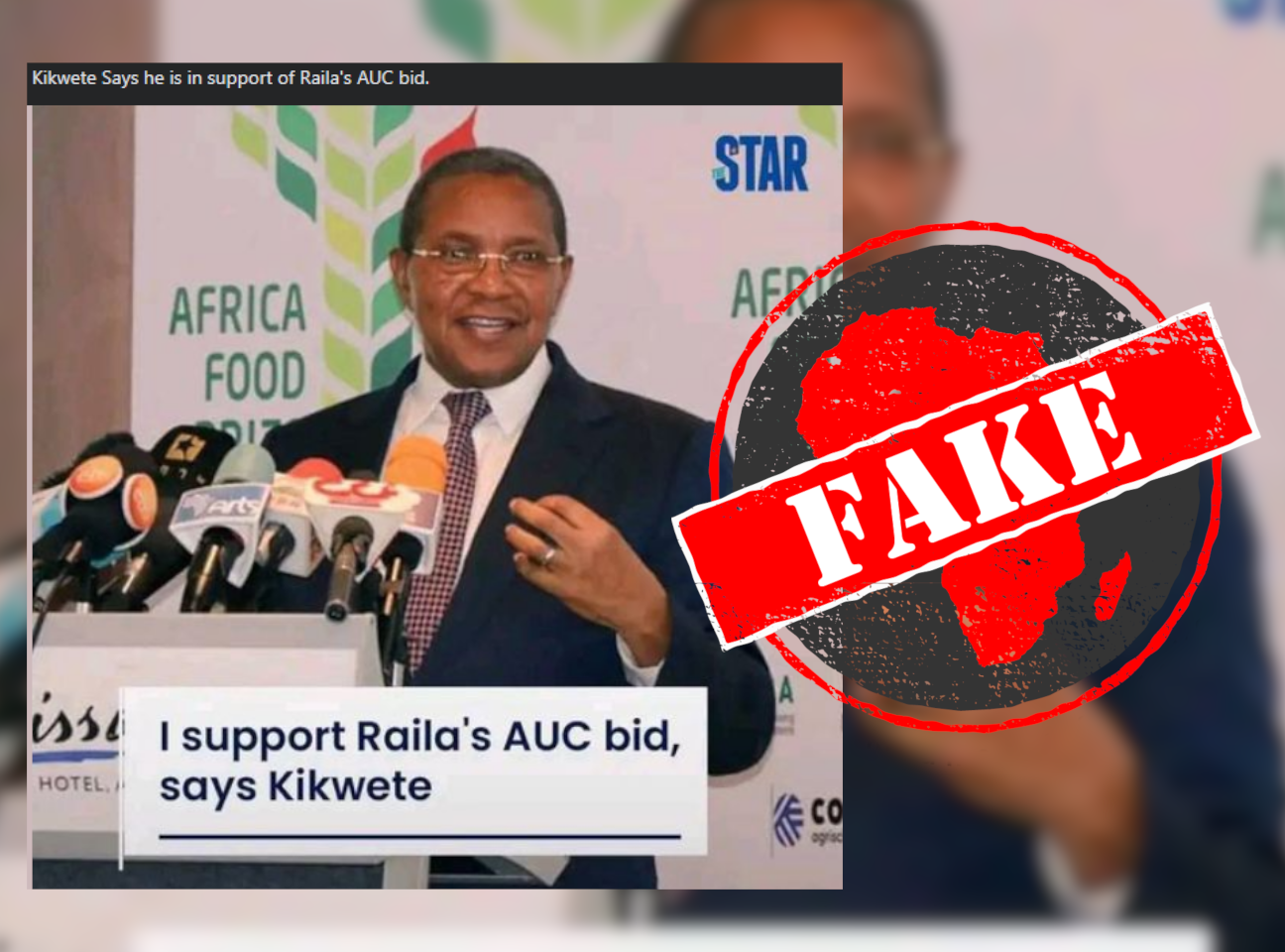IN SHORT: The Star newspaper did not publish a graphic showing former Tanzanian president Jakaya Kikwete endorsing the Kenyan opposition leader’s bid to chair the African Union Commission.
Kenyan opposition leader and former prime minister Raila Odinga has thrown his hat in the ring to chair the African Union Commission (AUC).
The AUC is the secretariat of the African Union and manages the day-to-day activities of the 55-country bloc. It is based in Addis Ababa, Ethiopia.
The position is an influential one in the African landscape.
At a press conference on 15 February 2024, Odinga said he was ready for the “influential role” and cited extensive consultations with allies before making the announcement. “I am ready to serve Africa,” the 79-year-old declared.
In relation to this, a graphic was posted on Facebook showing a photo of former Tanzanian president Jakaya Kikwete with a quote expressing support for Odinga’s candidacy.
The quote reads: “I support Raila's AUC bid, says Kikwete.”
The graphic is similar to the news cards that Kenya’s Star newspaper regularly posts on social media.
Kikwete has a long history of active involvement in African governance. He previously led the African Union Election Observation Mission to South Africa in 2019, and led a mission of 52 observers from various East African Community (EAC) institutions during Kenya's 2022 general elections.
Given Kikwete's influential background, his endorsement of Raila's AUC bid would carry much weight and be a major coup for Kenyans.
The graphic has also been published here. But is it legitimate?

‘Beware of fake news’
The Star published the graphic on its official X (formerly Twitter) account and stamped it “FAKE”.
“Stay alert and beware of fake news. If it is not on our official pages, it is FAKE!” the Star said.
Republish our content for free
For publishers: what to do if your post is rated false
A fact-checker has rated your Facebook or Instagram post as “false”, “altered”, “partly false” or “missing context”. This could have serious consequences. What do you do?
Click on our guide for the steps you should follow.
Publishers guideAfrica Check teams up with Facebook
Africa Check is a partner in Meta's third-party fact-checking programme to help stop the spread of false information on social media.
The content we rate as “false” will be downgraded on Facebook and Instagram. This means fewer people will see it.
You can also help identify false information on Facebook. This guide explains how.


Add new comment